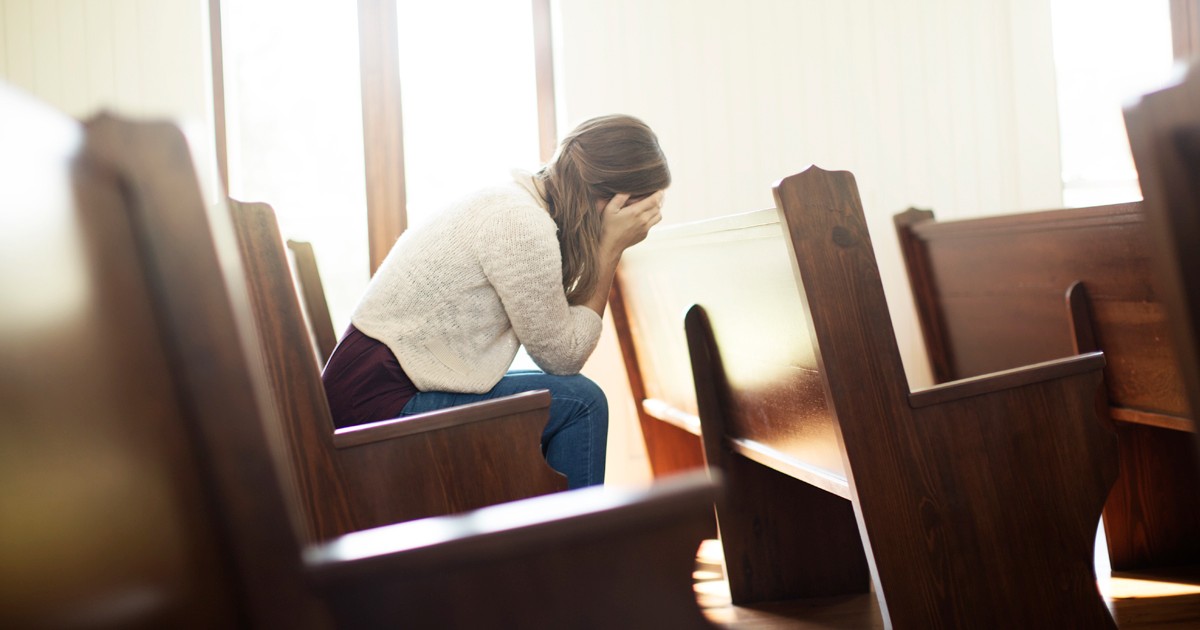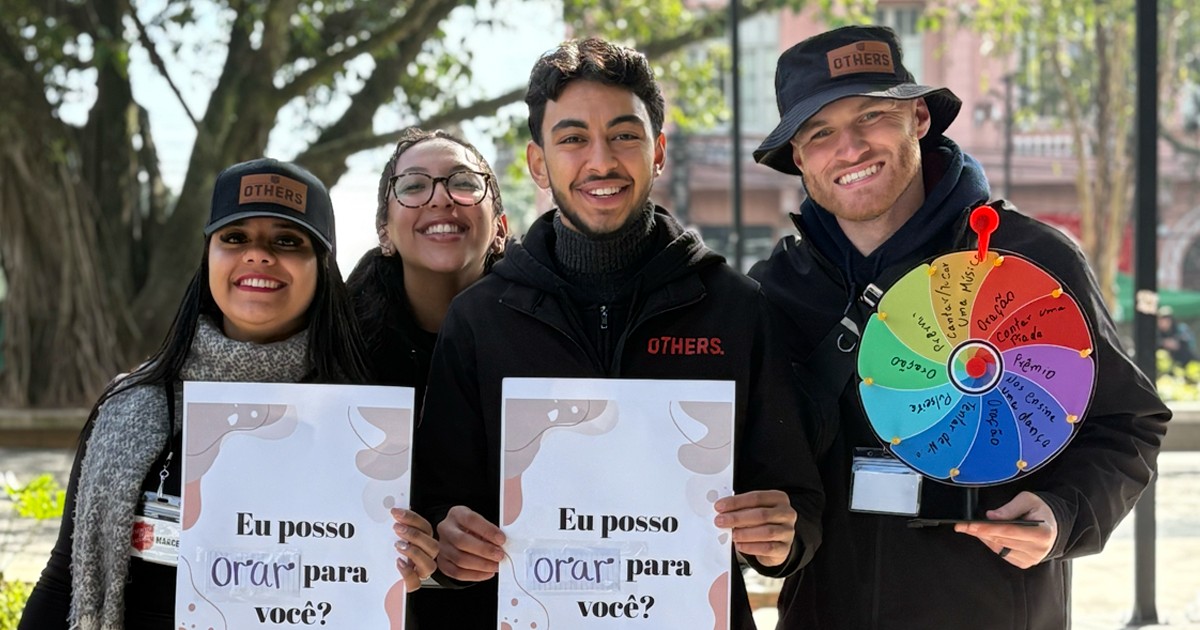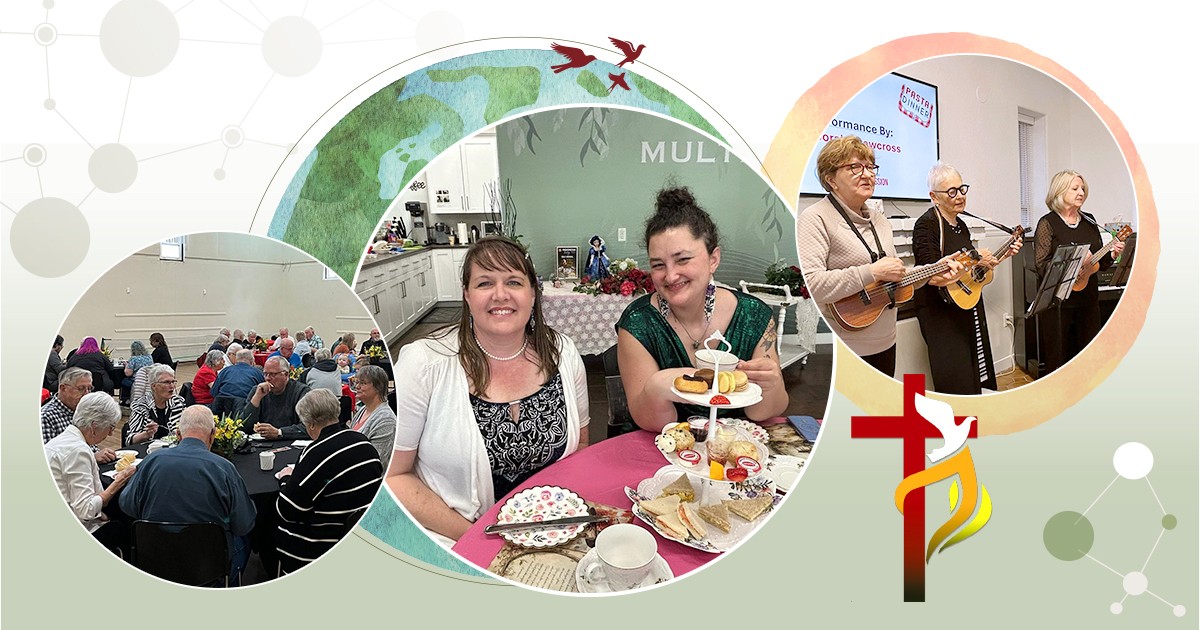In my 40-plus years of existence, I have never once referred to myself as a musician. Sure, I’ve been known to exhibit a few sub-par percussion skills from time to time, but there ends the extent of my music-playing abilities. When I consider my upbringing in the musically rich culture of both The Salvation Army and my home province of Newfoundland and Labrador, I wonder, How is it even possible that I could be so musically inept?
Yet, despite my lack of musical skill, I often find myself in the position of leading others in worship. In my vocation as a Salvation Army officer, I have regularly engaged in the process of planning, practising and providing leadership for congregational worship services. Experience has taught me that leading worship is not just about standing before a group of people and singing my favourite set list. Instead, it is a process that should be steeped in prayer, appropriate to the current liturgical season, applicable to the preacher’s key message and conscious of important elements, such as tempo, key and the musical accompaniment available.
For many years, this was my approach to planning worship. I prayerfully asked the Holy Spirit to guide me in my planning. I studied not just the Scriptures but also the rich theology found in our song book. I tried to understand the meaning behind the latest worship hit rapidly spreading through online playlists and congregations around the world. And I did all this to help craft a meaningful worship experience. For me, each planned order of worship was worth the extra time and attention to detail, for I truly believed (and still do) that all this work was completed as an offering to the ultimate composer, for he is, indeed, worthy of not just our praise, but our best praise.
While I haven’t wavered too much from this approach over the years, in recent days, I have become increasingly aware of another factor that we ought to consider when leading worship. I believe we need to be sensitive to the needs, both the known and unknown, of our people. Are we making space in our worship for the various seasons of people’s lives? More specifically, are we making space for those who are grieving?
The Wounded Heart
I realize that grief is probably not the first thing people consider when tasked with planning or leading worship. Grief is an uncomfortable subject for many. We may be inclined to reserve grief for funerals or memorials and not make it part of our regular worship gatherings. But while I love the fanfare and high energy found in many of our worship contexts, we need to be conscious of the fact that we have no idea of the emotions that each person brings with them each time they enter a space of worship. For the grieving soul, our worship needs to be a healing balm that soothes the wounded heart.
General Shaw Clifton once wrote of his own experience with grief and worship during the days following the death of his wife: “When Helen died, I found myself simply unable to sing in any setting. I had to let the singing of others touch me instead.” When I first read that extremely transparent and vulnerable statement from our former General, I was immediately thankful not only for his willingness to share that experience so publicly, but also because I knew his sentiments would resonate with those who read his words.
One Sunday, as I sang into a microphone: “All my life you have been faithful, all my life you have been so, so good,” my eyes fell upon two grieving parents sitting in the middle of the congregation. Their child had recently passed—a series of unfortunate events and difficult choices led to his premature exit from this life. I watched as they sat in silence with tears flowing down their cheeks and wondered to myself, “How are these lyrics of a good and faithful God landing with them today?” I’ve also sung, “God, you’re so good, you’re so good to me,” while noticing a young mother staring blankly ahead as she struggled to come to terms with the reality that her husband left, and she felt like her whole world was crumbling around her. Did she sense God’s goodness in that moment?
Just a few short years ago, I had the unenviable task of trying to lead a Sunday worship service after a congregation had been left in a state of bewilderment due to an extremely unfortunate event. A sea of confused and hurt faces stared back at me as I stumbled to find words of reassurance and comfort, and I confess that my own vocal cords were gripped by grief that day. It is because of these scenarios and others like them that I ask us to consider how we can make room for the grieving soul to be touched by the voices around them as we plan and lead in worship.
Songs of Lament
There is no doubt that music is a language that can penetrate through the toughest barriers and communicate when our own words often fail. I am amazed when I see video clips of family members who live with the heartbreaking challenge of dementia, people who cannot remember the name of their own spouse or children yet can sing along with every lyric of a favourite tune. Babies are soothed by a lullaby, a favourite song can completely alter one’s mood, and I have seen big burly men turn to puddles as the melody of a certain song floods their memory with images of days gone by. Add to this the reality that some medical professionals and therapists promote the healing benefits of music therapy to address various human needs and ailments, and I hope we will all agree that music is a powerful and helpful gift. As worship leaders, what a privilege it is to use this gift to help others.
I have already stated that we do not always welcome grief into our worship spaces. We have a natural tendency to try and stay positive, to point to the good news of the gospel. We want to hurry through any painful emotions and wrap things up with a neat little bow we call “hope.” With Easter as a frame of reference, many of us want to race quickly through the death of Good Friday, skip over the silence of Saturday, and get to the triumph of Resurrection Sunday as quickly as possible. Yet many in our congregations need time and space to sit in the grief and silence and process whatever journey they might be encountering.
Leanne Friesen, minister and speaker, shares her experience with grief following the death of her older sister in her book Grieving Room: Making Space for All the Hard Things after Death and Loss. She points to Psalm 137, explaining that when God’s people were taken into captivity by the Babylonians, they were told to dance and sing. But the exile was no time to sing joyous songs or remember the music of Jerusalem, which might conjure up memories of better days. They were in no mood to perform and there was no cause for celebration. They were not in the physical or emotional state to sing praise. Instead, they hung their harps in the tree branches and exclaimed, “How could we sing the Lord’s song in a foreign land?” (Psalm 137:4 NRSVUE).
Friesen writes, “This is a psalm of lament. It’s a story that names someone’s pain and suffering and that doesn’t end with things coming all together. The pain sits, heavy and unfinished. This was the type of song I needed when I was grieving. My foreign land was the land of grief, and I had never been there before. I didn’t know how to sing my old happy songs. I needed sad ones.”
Are we making space in our worship for sad ones?
Peace and Comfort
Please don’t misunderstand—I’m not advocating for our worship to be characterized by mournful sorrow and melancholic droning. We do very much serve a God of hope, and we have reason to dance and sing joyfully. We are encouraged to praise him with trumpets, cymbals, harps and flutes (see Psalm 150), or with drum kits, bass guitars, keyboards and even accordions, if that’s your thing! But all of this can be done while simultaneously holding space for the mourners, the grievers and the afflicted, who come to our worship services seeking comfort and peace amid life’s challenges.
As we continue to plan, practise and provide leadership in our various worship contexts, we must be sensitive to the possibility that the music and lyrics may be the catalyst God uses to provide peace, reassurance and healing for someone who will join us in worship that day. In my opinion, if even one individual is affected positively, then our efforts are worth it.
No, I am no musician, but I am a servant who has been on the receiving end of comforting moments within worship more times than I can count. I am thankful for the leaders who were sensitive to my needs and the needs of those around me and, through the gift of music, provided space for me to sit in my grief and process my pain.
May we, too, be willing to offer this beautiful gift of song to others, even the sad ones.
Major Sheldon Bungay is the divisional youth secretary in the Prairies and Northern Territories Division.
Reprinted from SAWorship magazine.
Photo: Prixel Creative/Lightstock.com










I’m going to get the book. I’m finding my church family and the music helps me to praise and draw near to Jesus. As I’m grieving now in the loss of my husband even as I’m looking after him at home with terminal cancer. It’s so hard and I need to get to church as long as I can. It is helping me to indure as I’m so weak. Thankful for your article.